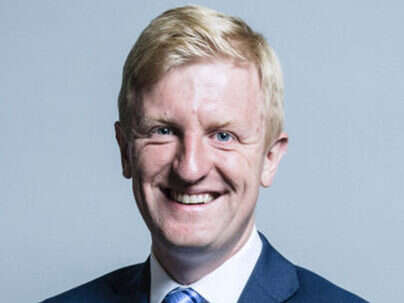
Oliver Dowden MP has been appointed as the new Culture Secretary in a Cabinet reshuffle, replacing Nicky Morgan in the role.
Dowden (pictured) leaves his role as paymaster general and Cabinet Office minister to head up the Department for Digital, Culture, Media and Sport from today.
He takes over from Baroness Morgan, who was returned to the post as a peer under Boris Johnson, despite having stood down as an MP at the general election in December.
She said had “loved” being Culture Secretary in a tweet earlier today, but it was “no secret” that she intended to step back from the Cabinet.
Dowden’s promotion marks his first time in charge of an office of state since he was elected as Conservative MP for Hertsmere in May 2015.
He is the fifth Culture Secretary in three years.
Dowden will be tasked with negotiating the licence-fee settlement for the BBC in the coming years, with a consultation currently under way to decriminalise evasion of the fee.
The MP was the first person appointed to the joint role of paymaster general and minister for the Cabinet Office, which he took up in July last year.
In that role Dowden had oversight of all Cabinet Office policies, but was not involved with Brexit.
In March last year, Dowden opposed a bill that would have enshrined televised leaders’ debates in election law and set up a commission to oversee them.
It followed a petition by Jonathan Levy, director of news gathering at Sky News, calling for mandatory TV debates for party leaders. The petition received more than 143,000 signatures.
Representing the Government, Dowden told the Commons: “It is an admirable aim to maximise such engagement.
“However, both these duties are better served in the hands of broadcasters, rather than in the hands of an independent commission.
“Broadcasters have the incentive, infrastructure and expertise to design and deliver media content that the public wish to consume.
“As has been acknowledged by many honourable members, broadcasters have in the past successfully delivered televised debates without the need for legislation, mandation or an independent commission.”
He said his “gut instinct” was that “one should not seek to regulate unless it is absolutely necessary”.
He said that “when we are dealing with a scenario of potentially infringing the rights and freedom of the press and broadcasters, we must have a very high bar for such regulation in the first place”.
Picture: Parliament
Email pged@pressgazette.co.uk to point out mistakes, provide story tips or send in a letter for publication on our "Letters Page" blog
